Brazilian Unit

Luciano Aronne de Abreu
Pontíficia Universidade Católica do Rio Grande do Sul
Luciano Aronne De Abreu holds a master's degree in Brazilian History from the Pontifical Catholic University of Rio Grande do Sul (PUCRS, 1995) and a doctorate in Latin American Historical Studies from the University of Rio dos Sinos Valley (UNISINOS, 2005). He is currently a full professor at the Postgraduate Program in History at PUCRS and Editor-in-Chief at PUCRS University Press (EDIPUCRS). Have experience in History, focusing on History of Brasil República, acting on the following subjects: Vargas Era, Political Authoritarianism, Brazilian Political-Social Thought, and Corporatism. He is coordinator of CNPq Research Groups Political Authoritarianism and Press in Contemporary Brazil and Authoritarianism and Corporatism in Comparative Perspective, and also participates in the following international research networks: International Network of Studies of Corporatism (NETCOR), Rights: History and Memory, and Lusophone Connections: Dictatorships and Democracies in Portuguese. In recent years, he has published several books, book chapters, and articles in leading national and international journals on the above topics.

João Fábio Bertonha
Universidade Estadual de Maringá
João Fábio Bertonha is a professor of History (undergraduate and graduate studies) at the State University of Maringá/PR and a CNPq researcher. He holds a PhD in History from the State University of Campinas, with a research period in Italy (1995-1996). He has completed post-doctoral studies at the Università di Roma (2010-2011), USP (2012), European University Institute of Firenze (2014-2015) and Universidad Carlos III de Madrid (2019-2020). He also holds the title of Livre Docente in History (USP, 2014) and two specialisations - in defence policy (2009) and international strategic affairs (2011) - from the National Defence University (CHDS) in Washington, DC. He was also visiting scholar at the University of Munich, University of Minnesota and many others.
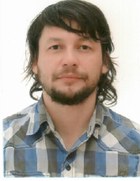
Gilvan Dockhorn
Universidade Federal de Santa Maria
Gilvan Dockhorn is Graduated in History from Federal University of Santa Maria (1996), master’s degree in History of Brazil at Pontifical Catholic University of Rio Grande do Sul (1999), PhD in History of Ibero American Societies at Pontifical Catholic University of Rio Grande do Sul (2004). He developed post-doctoral research "The Political Transition in Brazil - A Foreign Look (1974 - 1985)" - with CAPES scholarship – together with the Center for Interdisciplinary Studies of the 20th Century, University of Coimbra, Portugal (2013-2015).
He is an integrated researcher in the Group 1 - History and Memory of the Center for Interdisciplinary Studies of the 20th Century (CEIS20) from University of Coimbra. Member of the Scientific Council of International Network for the Study of Fascism, Authoritarianism, Totalitarianism and Transitions to Democracy (REFAT). Associate Professor at Federal University of Santa Maria in the Department of Tourism, Center for Social and Human Sciences.
Professor at the Permanent Nucleus of the Professional Postgraduate Program in Cultural Heritage at Federal University of Santa Maria (UFSM). He dedicates himself to themes related to the Recent History of Brazil; memory, belonging and identity; mass media; culture; production and distribution of cinema and audiovisual content; film society.
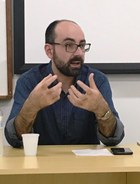
Carlos Artur Gallo
Universidade Federal de Pelotas (UFPEL)
Professor at the Department of Sociology and Politics at the Federal University of Pelotas. Research Productivity Fellowship of CNPq. Coordinates the Research Group on Politics of Memory (NUPPOME). Holds PhD in Political Science from the Federal University of Rio Grande do Sul (Brazil, 2016), with a period of research at the Complutense University of Madrid (Spain, 2014–2015). Research topics related to dictatorships in the Southern Cone and Southern Europe, authoritarian legacies and politics of memory. He is the author of books and articles published in Brazil and abroad.
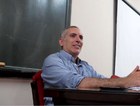
Fabio Gentile
Universidade Federal de Ceará
Fabio Gentile (Naples, Italy, 1970) is PhD in Philosophy and Politics (University “L´Orientale”, Naples, Italy). He has also carried out a post-doctoral stage in Political Science (University of São Paulo, Brazil). Currently, he is an associate professor of Political Sciences at the Department of Social Sciences, and permanent professor at the Graduate Program in Sociology (Federal University of Ceará, Fortaleza, Brazil). He is also a permanent professor at the Graduate Program in Public Policy (State University of Ceará, Fortaleza, Brazil). His research interests included Italian Neofascism, focusing the Neofascist and Monarchist Parties in Naples after the Second World War. On these themes he wrote two books: “Achille Lauro: un imprenditore politico dell´Italia repubblicana” (2008); “La rinascita della destra. Il laboratorio sindacale-politico napoletano da Saló ad Achille Lauro” (2013). His postdoctoral research was focused on the influence of Italian fascist corporatism in the social laws of the “Era Vargas”. On this theme, he published articles and book chapters in Italy, Portugal, Brazil, and EUA.
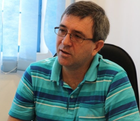
Diorge Konrad
Universidade Federal de Santa Maria
Diorge Alceno Konrad is a Brazilian historian with a graduated in Full Degree in History from the Federal Universitity of Santa Maria (1988), Master in History of Brazyl from the Pontifical Catholic University of Rio Grande do Sul (1994) and doctorate in Social History of Work from the State University of Campinas (2004). He is currently a Member of the Editorial Board na Comitee of “História e Luta de Classes” and of the Editorial Board of “Crítica Marxista”. Member of the World Work Group of National History Association – Brazyl, Associate and Professor at the Federal University of Santa Maria, in the Department and the Postgraduate Studies in History. He has experience in the area of History, with an enphasis on Social History f Work, acting mainly on the following themes: History of Work, Social and Political Movements, Dictatorships, Antifascist Movements, Rio Grande do Sul and Brazyl.

Glaucia Konrad
Universidade Federal de Santa Maria
Glaucia Vieira Ramos Konrad holds a degree in History (1988) from the Federal University of Santa Maria (UFSM), a bachelor's degree in Archival Science (2000) from the Federal University of Santa Maria (UFSM), a master's degree in Brazilian History (1994) from the Pontifical Catholic University of Rio Grande do Sul (PUCRS), and a PhD in Social History of Labor (2006) from the State University of Campinas (UNICAMP-SP). She is currently an associate professor at the Federal University of Santa Maria. She works in the Postgraduate Programs in History - PPGH (master's and doctorate) and in the Professional Postgraduate Program in Cultural Heritage - PPGPC (master's). She has experience in the areas of History and Archival Science, with an emphasis on Brazilian History. She is a researcher specializing in Labor History, Estado Novo, dictatorships, and judicial and police archives.
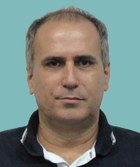
Reinaldo Lindolfo Lohn
Universidade do Estado de Santa Caterina
Reinaldo Lindolfo Lohn is a Full Professor at the Santa Catarina State University (UDESC, Brazil), where he works in the History Department, in undergraduate, Master's and Doctoral levels. His specialty is History of the Present Time and History of Contemporary Brazil. He is also the editor of the journal 'Tempo e Argumento', a reference in Brazil in the field of History of the Present Time. He holds a master's degree in History from the Universidade Federal de Santa Catarina (1997) and a doctorate in History from the Universidade Federal do Rio Grande do Sul (2002). He completed a postdoctoral period at the Institute of Contemporary History at NOVA University in Lisbon (2018). He is the coordinator of the Research Group on Memory and Identity (CNPq), also also participates in international research networks: Left-wings: praxis and social transformation (CLACSO) and Lusophone Connections: Dictatorships and Democracies in Portuguese. He coordinates the Laboratory of Contemporary Studies (LEC) and develops research focused on the theme of political transition in Brazil from a transnational perspective, involving authoritarianism, transnational activism, third-worldism and democratization.

Ignacio A. López
Universidad Católica Argentina
Ignacio A. López holds a PhD in History from the Universidad Torcuato Di Tella (Argentina) and he is currently Assistant Researcher at the National Scientific and Technical Research Council (CONICET) in Buenos Aires.He has been visiting fellow at the Center for Latin American and Caribbean Studies at the University of Michigan-Ann Arbor and the History Research Unit (MoSa Research Group) at KU Leuven. He is also Associate Professor at the Universidad Católica Argentina. He specialized in Political History during the Interwar years in Latin America. His last book is Un golpe decisivo. La dictadura de 1943 y el lugar de Juan Domingo Perón, compilated with Miranda Lida (Edhasa, 2023). He is interested in institutional designs, political parties and presidential history.

Tatyana de Amaral Maia
Universidade Federal de Juiz de Fora
Tatyana De Amaral Maia is Assistant Professor in the History Course and Postgraduate Program in History at Pontificia Universidade Católica do Rio Grande do Sul, Brazil, with a degree in History from Universidade do Estado do Rio de Janeiro (2002), a Master’s degree in Social History from Universidade Federal do Rio de Janeiro (2005), a Doctorate in History from Universidade do Estado do Rio de Janeiro (2010), a Postdoctoral in History from Universidade Federal Fluminense (2012) and a Postdoctoral in History from Universidade do Porto (Postdoctoral Fellowship, CAPES, 2014-2015). Editor of the Estudos Ibero-Americanos review from PPGH/PUCRS (Qualis A2). In 2017, was contemplated with CNPq’s Universal Call for the research: Public Images: political culture, newsreels, and propaganda in the military dictatorship (1967-1979). The main themes of research are: intellectuals, political cultures, dictatorship.

Francisco Carlos Palomanes Martinho
Universidade de São Paulo
Francisco Carlos Palomanes Martinho is Professor of Iberian History at the University of São Paulo and researcher at CNPq (National Council for Scientific and Technological Development) since 2002. He has published extensively on Corporatism, Authoritarianism and intellectuals in Brazil and Portugal. Most important publications: Marcello Caetano and the Portuguese “New State”. A Political Biography. Brighton: Sussex Academic Press, 2018; O Estado Novo português: história, historiografia e memória. São Paulo: Intermeios, 2019; O que há de novo sobre o Estado Novo? Autoritarismos e democracia. Rio de Janeiro: FGV Editora, 2019 (edited with Américo Freire and Marco Aurélio Vannucchi); Intelectuais e culturas políticas em Portugal: á volta de Antero de Quental e António Sérgio. Tempo. Niterói, vol. 25, n. 2, 300-319, 2019; Marcello Caetano no (Jornal do) Brasil. Varia Historia. Belo Horizonte, vol. 35, n. 68, 631-660, 2019; World War One and Authoritarian Thought in the Lusophone World. E-JOURNAL OF PORTUGUESE HISTORY, v. 15, p. 55-70, 2017; Antonio Sergio and Joel Serrão, two Readers of Antero. PORTUGUESE STUDIES REVIEW, v. 24, p. 139-148, 2017; Memory of Resistance and the Resistance of Memory: An Analysis of the Construction of Corporatism in the First Years of the Portuguese Estado Novo. Portuguese Studies, v. 32, p. 172-198, 2016.
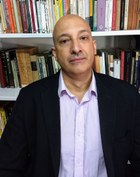
Luís Carlos Martins
Pontíficia Universidade Católica do Rio Grande do Sul
I am a doctor (2010) and post-doctor (2012) in History by the Pontifícia Universidade Católica do Rio Grande do Sul (Pontifical Catholic University of Rio Grande do Sul - PUCRS). I am currently a professor of undergraduate and graduate courses at the same university, where I also coordinate graduate studies in History. I work mainly on the themes: History of the Press in Brazil and the debates around the economic development during the Second Vargas Government (1951-1954). I am the author of the Works: A grande imprensa “liberal” carioca e a política econômica do segundo governo Vargas (1951-1954): conflito entre projetos de desenvolvimento (Porto Alegre, EDIPUCRS, 2016), Pensar a História com e além de Bourdieu: experiências de pesquisa (Porto Alegre, Editora Fi, 2017) and Embracing the Past, Designing the Future: authoritarianism and economic development in Brazil under Getulio Vargas (Sussex Academic Press, 2020), co-authored with ABREU, Luciano Aronne Abreu and Geandra Munareto.

Marçal de Menezes Paredes
Pontíficia Universidade Católica do Rio Grande do Sul
Marçal de Menezes Paredes is an Associate Professor at the Pontifical Catholic University of Rio Grande do Sul (PUCRS). He has a History Ph.D. from the University of Coimbra (UC – Portugal). From 2019 (at least to 2025) he has been receiving the Research Grant “Productivity Researcher” from the National Council for Scientific and Technological Development, Brazil. During 2019-2020 he was a Visting Professor at York University (YU – Canada) receiving a Scholarship from the Coordination of Improvement of Higher Education Personnel, Brazil. Presently, he is the Director of the Laboratory of History of Iberian and American History in Global Context (PUCRS, Brazil), a member of the Board of Directors of the Lusophone Studies Association (LSA-YU, Canada), a Collaborating Researcher at the Centre of 20th Century Interdisciplinary Studies (UC, Portugal). His primary academic interests are the Anticolonial Activism and the Nation-building process in Portuguese-speaking countries during the Global Cold War. Given that, his current research project focuses on the transnational committees that gave political support in western countries to the Anticolonial struggle in Portuguese Africa. Mainly, his recent investigation concentrates attention on the existence of a sizeable political network between the Toronto Committee for the Liberation of Southern Africa (TCLSAC) and the Committee for the Liberation of Mozambique, Angola and Guinea-Bissau (CFMAG), Canadian and British Committees, respectively, with FRELIMO in Mozambique, and MPLA in Angola.
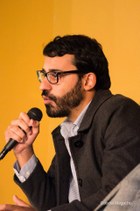
Fernando Perlatto
Universidade Federal de Juiz de Fora
Fernando Perlatto is a Professor of Contemporary History at the Federal University of Juiz de Fora (UFJF), Brazil. He holds his PhD in Sociology from the State University of Rio de Janeiro (UERJ). He was a Visiting Scholar at the Institute for Public Knowledge, associated with New York University (NYU-IPK). His research interests are at the intersection of History, Sociology, and Political Science, particularly concerned with democracy, public sphere, and public memory. His current research addresses democracy in Brasil, political memories and public memories about the Brazilian military dictatorship in the media, the arts, and in the public space.

Denise Rollemberg
Universidade Federal Fluminense
Titular Professor of Contemporary History at Universidade Federal Fluminense, researcher from CNPq, FAPERJ and Núcleo de Estudos Contemporâneos (NEC-UFF).
She is the author of the books:
Exílio. Entre raízes e radares (Record, 1999);
O apoio de Cuba à luta armada no Brasil (Mauad, 2001);
Resistência. Memória da ocupação nazista na França e na Itália (Alameda, 2016);
Valquírias. Memórias da Resistência alemã ao nazismo (Ed.UFF, in press).
She edited the Europa volumes of the edited books:
A construção social dos regimes autoritários. Legitimidade, consenso e consentimento no século XX. 3 vols. Civilização Brasileira, 2010;
História e memória das ditaduras do século XX. 2 vols. Rio de Janeiro, Ed. FGV, 2015.
She edited articles in edited books and academic reviews such as:
"Aos grandes homens a Pátria reconhecida”. Os Justos no Panthéon. In: Angela de C. Gomes (ed.). Direitos e Cidadania. Vol. 2. Rio de Janeiro: Ed.FGV, 2007);
Revoluções de direita na Europa do entre-guerras: o fascismo e o nazismo. Estudos Históricos. Rio de Janeiro, vol. 30, n. 61, maio-ago. 2017;
Historiadores franceses na zona cinzenta: lembranças da guerra (com Ronaldo Vainfas). Revista de História. USP, São Paulo, n.176, 2017;
The Brazilian exile experience: remaking identities. Latin American Perspectives. Vol. 34, s. 4, 2007.

Luis Rosenfield
Pontíficia Universidade Católica do Rio Grande do Sul
Luis Rosenfield is an Associate History Professor at the Pontifical Catholic University of Rio Grande do Sul (PUCRS). He has a Ph.D in Law from the Universidade do Vale do Rio do Sinos (UNISINOS) and a Ph.D in Philosophy from the Pontifical Catholic University of Rio Grande do Sul (PUCRS). His areas of expertise are the history of Brazilian constitutional thought and the history of political and philosophical ideas in the 19th and 20th centuries. The current research focuses on the intellectual history of Brazilian authoritarian jurists in the interwar period and the rise of eugenic ideas in Brazil in early 20th Century.

Stefano Simini
Pontíficia Universidade Católica do Rio Grande do Sul
Historian and researcher specializing in contemporary history, political movements, and fascism studies. Experienced in academic research, publishing, and international conference presentations. Strong analytical skills, multilingual proficiency, and an interdisciplinary approach to historical analysis.
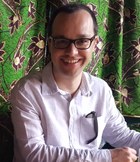
Marco Aurélio Vannucchi
Fundação Getúlio Vargas
Marco Aurélio Vannucchi has a Degree and Master’s in History from Universidade de São Paulo (USP). He has a Doctorate in History from the same institution, with a sandwich period in Université Paris IV (Sorbonne). He has a Post-Doctorate in Sociology from UNICAMP. Author of Os cruzados da ordem jurídica. A atuação da Ordem dos Advogados do Brasil (OAB), 1945-1964 (2013). Researcher for the International Network of Analysis of Corporatism and the Organization of Interests (NETCOR). Research for the Rede Conexões Lusófonas.

Cláudia Viscardi
Universidade Federal de Juiz de Fora
Cláudia Viscardi is a senior Professor at the Federal University of Juiz de Fora – Minas Gerais, Brazil and a senior researcher of CNPq. Her PHD in Social History was made at Federal University of Rio de Janeiro. She has a Master Degree in Political Science at the Federal University of Minas Gerais. She was a visiting professor at Manchester Metropolitan University (2007-2008)- UK, a visiting researcher at Fundação Casa de Rui Barbosa (Rio de Janeiro) in 2011-2013, as well as in Lisbon University – Portugal (2015-2016). She was president of the Minas Gerais Regional Section of the National History Association (ANPUH-MG), and she was the co-ordinator of the Working Group on Political History at ANPUH (2015-2017). She was co-ordinator of the Graduate Program in History at UFJF (2016-2018) and member of the National Board of the National History Association - ANPUH (2017-2019). She was the Dean of Research of the Federal University of Juiz de Fora (2002-2006). She is currently co-ordinating the International Research Network ``Lusophone Connections: dictatorship and democracy in Portuguese". Her main research areas deal with the analyses of the Federalism system, oligarchic regimes, mutual and benefit societies, and lately, the corporatism regimes. She supervised more than 30 thesis (Postgraduate Research Degree) and dissertations. She authored eight books, many chapters in books, and articles in refereed journals, part of them can be reached at ResearchGate.
